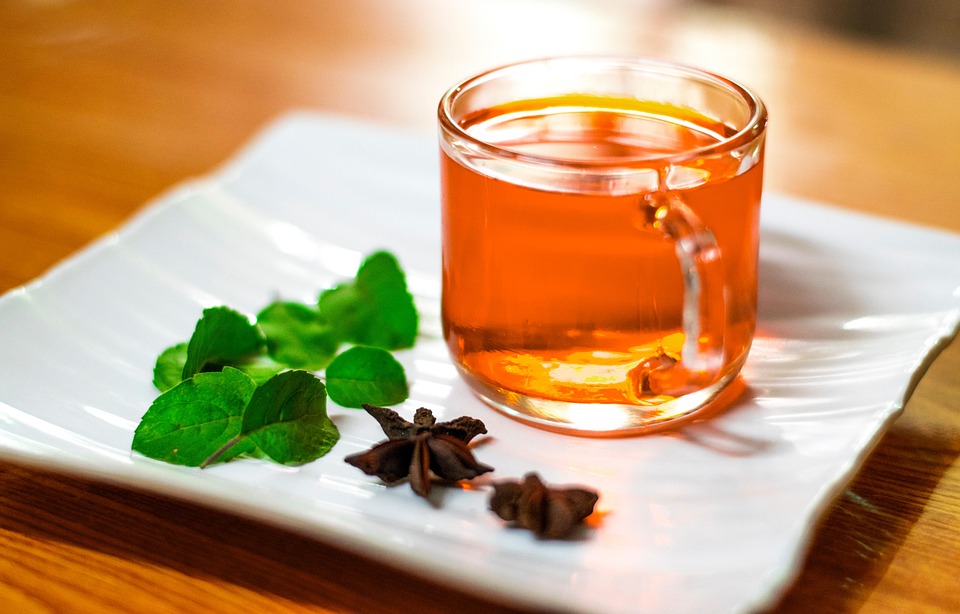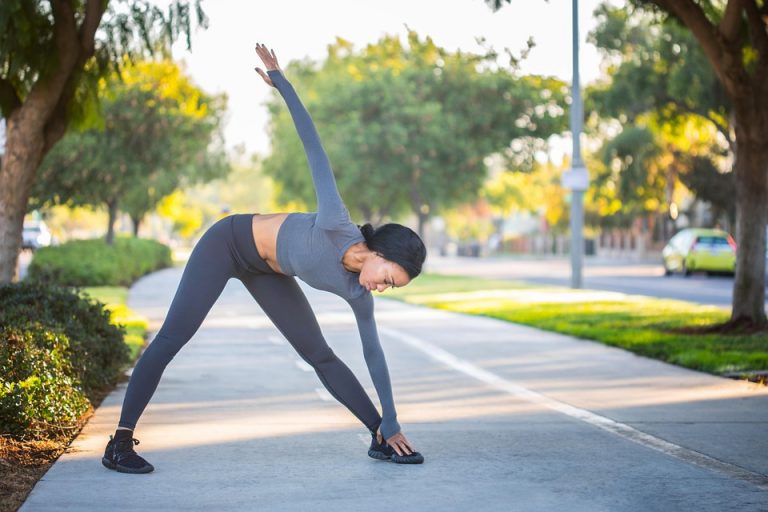Herbal teas are a delightful and effective way to boost your immune system. With each sip, you’re not just warming your soul; you’re also cradling your body in a blanket of health benefits. As the seasons shift and the world outside can feel a bit unpredictable, it’s time to turn to nature’s remedies. Let’s dive into the world of herbal teas and discover how simple ingredients can elevate your wellness.
Contents
- Why Herbal Teas Matter for Your Immune System
- 1. Echinacea Tea
- 2. Elderberry Tea
- 3. Ginger Tea
- 4. Peppermint Tea
- 5. Chamomile Tea
- 6. Turmeric Tea
- 7. Rooibos Tea
- 8. Lemon Balm Tea
- 9. Nettle Tea
- 10. Holy Basil (Tulsi) Tea
- How to Incorporate Herbal Teas into Your Daily Routine
- Recipes to Enhance Your Herbal Tea Experience
- The Science Behind Herbal Teas and Immunity
- Bottom Line
Why Herbal Teas Matter for Your Immune System
Herbal teas have been revered for centuries, not just for their flavors but for their healing properties. They are rich in antioxidants, vitamins, and minerals that help your body fend off illness, reduce inflammation, and promote overall well-being. When you sip on these brews, you’re giving your immune system a natural boost.
Understanding the importance of your immune system is vital. It’s your body’s defense against disease and infection. A robust immune system helps you feel your best, fight off the common cold, and even tackle more serious illnesses. The right herbs can enhance your body’s natural defenses and make you feel more resilient.
1. Echinacea Tea
Echinacea is a powerhouse when it comes to supporting your immune system. This magnificent herb is known for its antiviral and antibacterial properties. Studies suggest that echinacea can reduce the duration of colds and improve overall immune response.
- How to Brew: Steep 1-2 teaspoons of dried echinacea in boiling water for about 10 minutes. Add honey for sweetness.
- Taste Profile: Earthy with a hint of sweetness.
2. Elderberry Tea
Elderberry is a true warrior against colds and flu. Packed with antioxidants and vitamins A, B, and C, elderberry has been shown to reduce the severity and duration of illnesses.
- How to Brew: Use dried elderberries or elderberry tea bags. Steep in hot water for 15 minutes.
- Taste Profile: Tart and fruity, often likened to a berry explosion.
3. Ginger Tea
Ginger is not just a culinary delight; it’s also a powerful immune booster. Its anti-inflammatory properties help soothe sore throats and reduce inflammation. Plus, it can help with digestion!
- How to Brew: Slice fresh ginger root and steep in boiling water for 10 minutes. Add lemon for an extra zing.
- Taste Profile: Spicy and invigorating.
4. Peppermint Tea
Peppermint tea is refreshing and soothing, making it a great option for boosting your immune system. Its menthol content helps clear your sinuses, making it easier to breathe.
- How to Brew: Steep fresh or dried peppermint leaves in boiling water for 5-10 minutes.
- Taste Profile: Cool and minty.
5. Chamomile Tea
Chamomile is known for its calming effects, but it also has immune-boosting properties. Rich in antioxidants, it helps your body fight off illness while promoting relaxation.
- How to Brew: Use dried chamomile flowers or tea bags and steep for 5 minutes.
- Taste Profile: Floral and slightly sweet.
6. Turmeric Tea
Turmeric is a golden spice known for its powerful anti-inflammatory and antioxidant effects. Curcumin, the active ingredient, has been studied for its ability to enhance immune function.
- How to Brew: Mix 1 teaspoon of turmeric powder with hot water, add black pepper to increase absorption, and honey for sweetness.
- Taste Profile: Earthy with a hint of spice.
7. Rooibos Tea
Rooibos is a caffeine-free herbal tea packed with antioxidants. It’s known to support immune function and improve skin health. Plus, its low tannin content makes it gentle on the stomach.
- How to Brew: Steep rooibos leaves in boiling water for 5-7 minutes.
- Taste Profile: Rich and slightly sweet with a hint of vanilla.
8. Lemon Balm Tea
This lemony herb is a member of the mint family and is known for its calming properties. Lemon balm can help reduce stress and enhance immune function, making it a perfect tea for your wellness routine.
- How to Brew: Steep fresh or dried leaves in hot water for 10 minutes.
- Taste Profile: Light and refreshing with a citrus twist.
9. Nettle Tea
Nettle is often overlooked but is a nutrient powerhouse. It’s filled with vitamins A, C, K, and several B vitamins. Nettle tea is known to help combat allergy symptoms and support your immune system.
- How to Brew: Steep dried nettle leaves in boiling water for 10 minutes.
- Taste Profile: Grassy and slightly earthy.
10. Holy Basil (Tulsi) Tea
Holy basil, or tulsi, is revered in Ayurvedic medicine for its adaptogenic properties. It helps your body manage stress, which is crucial for maintaining a healthy immune system.
- How to Brew: Steep dried tulsi leaves in boiling water for about 10 minutes.
- Taste Profile: Spicy, with a hint of clove.
How to Incorporate Herbal Teas into Your Daily Routine
Drinking herbal tea can be a simple yet transformative ritual in your day. Here are some tips to help you make these potent brews a part of your life:
- Morning Boost: Start your day with ginger or echinacea tea to kickstart your immune system.
- Midday Calm: Sip chamomile or lemon balm during lunch to ease stress.
- Evening Ritual: Wind down with peppermint or rooibos tea for relaxation.
Recipes to Enhance Your Herbal Tea Experience
Immune-Boosting Tea Blend
-
Ingredients:
- 1 tsp echinacea
- 1 tsp elderberry
- 1 tsp ginger
- 1 tsp turmeric
-
Instructions: Combine all ingredients in a teapot. Steep in boiling water for 10-15 minutes. Add honey and lemon to taste.
Soothing Chamomile Blend
-
Ingredients:
- 2 tsp chamomile
- 1 tsp lemon balm
- 1 tsp peppermint
-
Instructions: Mix the herbs and steep in hot water for 5-7 minutes. Enjoy before bedtime.
The Science Behind Herbal Teas and Immunity
Research shows that many herbal teas possess immune-boosting properties. For instance, a study published in the Journal of Ethnopharmacology found that echinacea can stimulate the immune system, while a review in Nutrients highlighted the role of antioxidants in herbal teas in supporting immune health.
- Echinacea: National Center for Complementary and Integrative Health
- Elderberry: Healthline
- Ginger: WebMD
Bottom Line
Herbal teas are not just comforting beverages; they are a fantastic way to boost your immune system naturally. By incorporating these ten herbal wonders into your daily routine, you can support your body’s defenses, feel more vibrant, and navigate life with resilience. So grab your favorite mug, brew a cup, and toast to your health!
FAQ
1. How often should I drink herbal tea?
Aim for 1-3 cups per day, depending on your preference and the specific herbs you choose.
2. Are there any side effects?
Most herbal teas are safe for most people. However, consult with a healthcare provider if you’re pregnant, nursing, or on medication.
3. Can I combine different herbal teas?
Absolutely! Mixing herbs can enhance flavors and health benefits. Just be mindful of the properties of each herb.
Start sipping, and let nature nurture your immune health!
Get Your FREE Natural Health Guide!
Subscribe now and receive our exclusive ebook packed with natural health tips, practical wellness advice, and easy lifestyle changes, delivered straight to your inbox.




